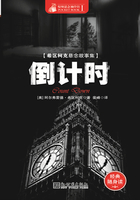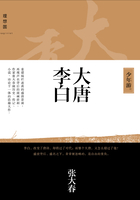CONVENTION'S OWN TINDER-BOX--THE EYE THAT IS GREEN
Hurstwood's residence on the North Side, near Lincoln Park, was a brick building of a very popular type then, a three-story affair with the first floor sunk a very little below the level of the street. It had a large bay window bulging out from the second floor, and was graced in front by a small grassy plot, twenty- five feet wide and ten feet deep. There was also a small rear yard, walled in by the fences of the neighbours and holding a stable where he kept his horse and trap.
The ten rooms of the house were occupied by himself, his wife Julia, and his son and daughter, George, Jr., and Jessica. There were besides these a maid-servant, represented from time to time by girls of various extraction, for Mrs. Hurstwood was not always easy to please.
"George, I let Mary go yesterday," was not an unfrequent salutation at the dinner table.
"All right," was his only reply. He had long since wearied of discussing the rancorous subject.
A lovely home atmosphere is one of the flowers of the world, than which there is nothing more tender, nothing more delicate, nothing more calculated to make strong and just the natures cradled and nourished within it. Those who have never experienced such a beneficent influence will not understand wherefore the tear springs glistening to the eyelids at some strange breath in lovely music. The mystic chords which bind and thrill the heart of the nation, they will never know.
Hurstwood's residence could scarcely be said to be infused with this home spirit. It lacked that toleration and regard without which the home is nothing. There was fine furniture, arranged as soothingly as the artistic perception of the occupants warranted. There were soft rugs, rich, upholstered chairs and divans, a grand piano, a marble carving of some unknown Venus by some unknown artist, and a number of small bronzes gathered from heaven knows where, but generally sold by the large furniture houses along with everything else which goes to make the "perfectly appointed house."
In the dining-room stood a sideboard laden with glistening decanters and other utilities and ornaments in glass, the arrangement of which could not be questioned. Here was something Hurstwood knew about. He had studied the subject for years in his business. He took no little satisfaction in telling each Mary, shortly after she arrived, something of what the art of the thing required. He was not garrulous by any means. On the contrary, there was a fine reserve in his manner toward the entire domestic economy of his life which was all that is comprehended by the popular term, gentlemanly. He would not argue, he would not talk freely. In his manner was something of the dogmatist. What he could not correct, he would ignore. There was a tendency in him to walk away from the impossible thing.
There was a time when he had been considerably enamoured of his Jessica, especially when he was younger and more confined in his success. Now, however, in her seventeenth year, Jessica had developed a certain amount of reserve and independence which was not inviting to the richest form of parental devotion. She was in the high school, and had notions of life which were decidedly those of a patrician. She liked nice clothes and urged for them constantly. Thoughts of love and elegant individual establishments were running in her head. She met girls at the high school whose parents were truly rich and whose fathers had standing locally as partners or owners of solid businesses. These girls gave themselves the airs befitting the thriving domestic establishments from whence they issued. They were the only ones of the school about whom Jessica concerned herself.
Young Hurstwood, Jr., was in his twentieth year, and was already connected in a promising capacity with a large real estate firm. He contributed nothing for the domestic expenses of the family, but was thought to be saving his money to invest in real estate. He had some ability, considerable vanity, and a love of pleasure that had not, as yet, infringed upon his duties, whatever they were. He came in and went out, pursuing his own plans and fancies, addressing a few words to is mother occasionally, relating some little incident to his father, but for the most part confining himself to those generalities with which most conversation concerns itself. He was not laying bare his desires for any one to see. He did not find any one in the house who particularly cared to see.
Mrs. Hurstwood was the type of woman who has ever endeavoured to shine and has been more or less chagrined at the evidences of superior capability in this direction elsewhere. Her knowledge of life extended to that little conventional round of society of which she was not--but longed to be--a member. She was not without realisation already that this thing was impossible, so far as she was concerned. For her daughter, she hoped better things. Through Jessica she might rise a little. Through George, Jr.'s, possible success she might draw to herself the privilege of pointing proudly. Even Hurstwood was doing well enough, and she was anxious that his small real estate adventures should prosper. His property holdings, as yet, were rather small, but his income was pleasing and his position with Fitzgerald and Moy was fixed. Both those gentlemen were on pleasant and rather informal terms with him.
The atmosphere which such personalities would create must be apparent to all. It worked out in a thousand little conversations, all of which were of the same calibre.
"I'm going up to Fox Lake tomorrow," announced George, Jr., at the dinner table one Friday evening.
"What's going on up there?" queried Mrs. Hurstwood.
"Eddie Fahrway's got a new steam launch, and he wants me to come up and see how it works."
"How much did it cost him?" asked his mother.
"Oh, over two thousand dollars. He says it's a dandy."
"Old Fahrway must be making money," put in Hurstwood.
"He is, I guess. Jack told me they were shipping Vegacura to Australia now--said they sent a whole box to Cape Town last week."
"Just think of that!" said Mrs. Hurstwood, "and only four years ago they had that basement in Madison Street."
"Jack told me they were going to put up a six-story building next spring in Robey Street."
"Just think of that!" said Jessica.
On this particular occasion Hurstwood wished to leave early.
"I guess I'll be going down town," he remarked, rising.
"Are we going to McVicker's Monday?"questioned Mrs. Hurstwood, without rising.
"Yes," he said indifferently.
They went on dining, while he went upstairs for his hat and coat. Presently the door clicked.
"I guess papa's gone," said Jessica.
The latter's school news was of a particular stripe.
"They're going to give a performance in the Lyceum, upstairs," she reported one day, "and I'm going to be in it."
"Are you?" said her mother.
"Yes, and I'll have to have a new dress. Some of the nicest girls in the school are going to be in it. Miss Palmer is going to take the part of Portia."
"Is she?" said Mrs. Hurstwood.
"They've got that Martha Griswold in it again. She thinks she can act."
"Her family doesn't amount to anything, does it?" said Mrs. Hurstwood sympathetically. "They haven't anything, have they?"
"No," returned Jessica, "they're poor as church mice."
She distinguished very carefully between the young boys of the school, many of whom were attracted by her beauty.
"What do you think?" she remarked to her mother one evening; "that Herbert Crane tried to make friends with me."
"Who is he, my dear?" inquired Mrs. Hurstwood.
"Oh, no one," said Jessica, pursing her pretty lips. "He's just a student there. He hasn't anything."
The other half of this picture came when young Blyford, son of Blyford, the soap manufacturer, walked home with her. Mrs. Hurstwood was on the third floor, sitting in a rocking-chair reading, and happened to look out at the time.
"Who was that with you, Jessica?" she inquired, as Jessica came upstairs.
"It's Mr. Blyford, mamma," she replied.
"Is it?" said Mrs. Hurstwood.
"Yes, and he wants me to stroll over into the park with him," explained Jessica, a little flushed with running up the stairs.
"All right, my dear," said Mrs. Hurstwood. "Don't be gone long."
As the two went down the street, she glanced interestedly out of the window. It was a most satisfactory spectacle indeed, most satisfactory.
In this atmosphere Hurstwood had moved for a number of years, not thinking deeply concerning it. His was not the order of nature to trouble for something better, unless the better was immediately and sharply contrasted. As it was, he received and gave, irritated sometimes by the little displays of selfish indifference, pleased at times by some show of finery which supposedly made for dignity and social distinction. The life of the resort which he managed was his life. There he spent most of his time. When he went home evenings the house looked nice. With rare exceptions the meals were acceptable, being the kind that an ordinary servant can arrange. In part, he was interested in the talk of his son and daughter, who always looked well. The vanity of Mrs. Hurstwood caused her to keep her person rather showily arrayed, but to Hurstwood this was much better than plainness. There was no love lost between them. There was no great feeling of dissatisfaction. Her opinion on any subject was not startling. They did not talk enough together to come to the argument of any one point. In the accepted and popular phrase, she had her ideas and he had his. Once in a while he would meet a woman whose youth, sprightliness, and humour would make his wife seem rather deficient by contrast, but the temporary dissatisfaction which such an encounter might arouse would be counterbalanced by his social position and a certain matter of policy. He could not complicate his home life, because it might affect his relations with his employers. They wanted no scandals. A man, to hold his position, must have a dignified manner, a clean record, a respectable home anchorage. Therefore he was circumspect in all he did, and whenever he appeared in the public ways in the afternoon, or on Sunday, it was with his wife, and sometimes his children. He would visit the local resorts, or those near by in Wisconsin, and spend a few stiff, polished days strolling about conventional places doing conventional things. He knew the need of it.
When some one of the many middle-class individuals whom he knew, who had money, would get into trouble, he would shake his head. It didn't do to talk about those things. If it came up for discussion among such friends as with him passed for close, he would deprecate the folly of the thing. "It was all right to do it--all men do those things--but why wasn't he careful? A man can't be too careful." He lost sympathy for the man that made a mistake and was found out.
On this account he still devoted some time to showing his wife about--time which would have been wearisome indeed if it had not been for the people he would meet and the little enjoyments which did not depend upon her presence or absence. He watched her with considerable curiosity at times, for she was still attractive in a way and men looked at her. She was affable, vain, subject to flattery, and this combination, he knew quite well, might produce a tragedy in a woman of her home position. Owing to his order of mind, his confidence in the sex was not great. His wife never possessed the virtues which would win the confidence and admiration of a man of his nature. As long as she loved him vigorously he could see how confidence could be, but when that was no longer the binding chain--well, something might happen.
During the last year or two the expenses of the family seemed a large thing. Jessica wanted fine clothes, and Mrs. Hurstwood, not to be outshone by her daughter, also frequently enlivened her apparel. Hurstwood had said nothing in the past, but one day he murmured.
"Jessica must have a new dress this month," said Mrs. Hurstwood one morning.
Hurstwood was arraying himself in one of his perfection vests before the glass at the time.
"I thought she just bought one," he said.
"That was just something for evening wear," returned his wife complacently.
"It seems to me," returned Hurstwood, "that she's spending a good deal for dresses of late."
"Well, she's going out more," concluded his wife, but the tone of his voice impressed her as containing something she had not heard there before.
He was not a man who traveled much, but when he did, he had been accustomed to take her along. On one occasion recently a local aldermanic junket had been arranged to visit Philadelphia--a junket that was to last ten days. Hurstwood had been invited.
"Nobody knows us down there," said one, a gentleman whose face was a slight improvement over gross ignorance and sensuality. He always wore a silk hat of most imposing proportions. "We can have a good time." His left eye moved with just the semblance of a wink. "You want to come along, George."
The next day Hurstwood announced his intention to his wife.
"I'm going away, Julia," he said, "for a few days."
"Where?" she asked, looking up.
"To Philadelphia, on business."
She looked at him consciously, expecting something else.
"I'll have to leave you behind this time."
"All right," she replied, but he could see that she was thinking that it was a curious thing. Before he went she asked him a few more questions, and that irritated him. He began to feel that she was a disagreeable attachment.
On this trip he enjoyed himself thoroughly, and when it was over he was sorry to get back. He was not willingly a prevaricator, and hated thoroughly to make explanations concerning it. The whole incident was glossed over with general remarks, but Mrs. Hurstwood gave the subject considerable thought. She drove out more, dressed better, and attended theatres freely to make up for it.
Such an atmosphere could hardly come under the category of home life. It ran along by force of habit, by force of conventional opinion. With the lapse of time it must necessarily become dryer and dryer--must eventually be tinder, easily lighted and destroyed.














